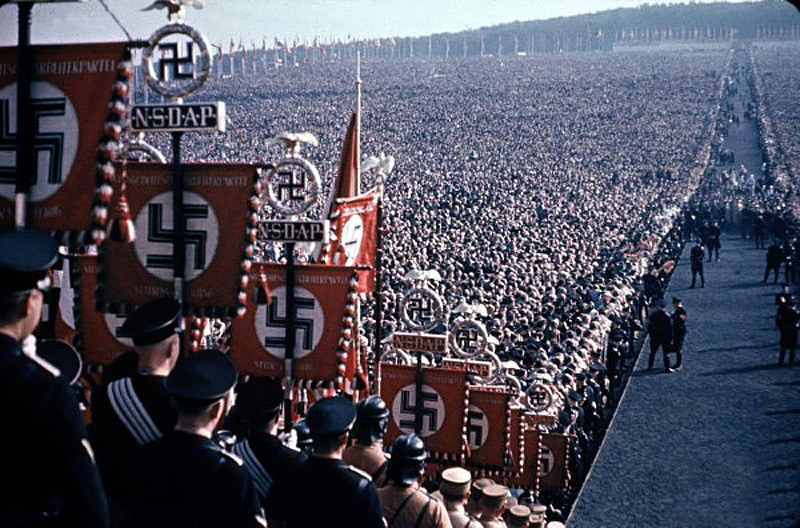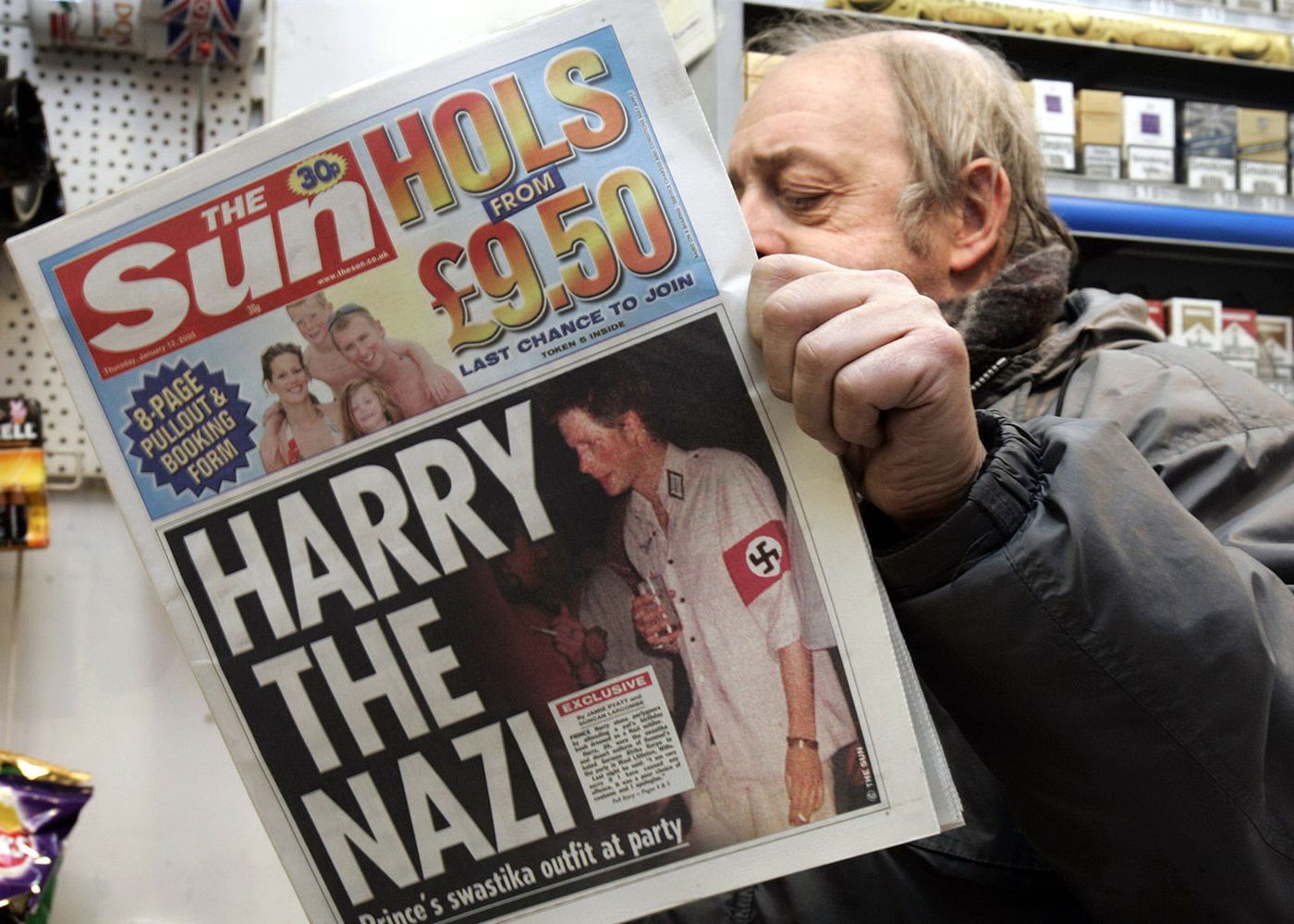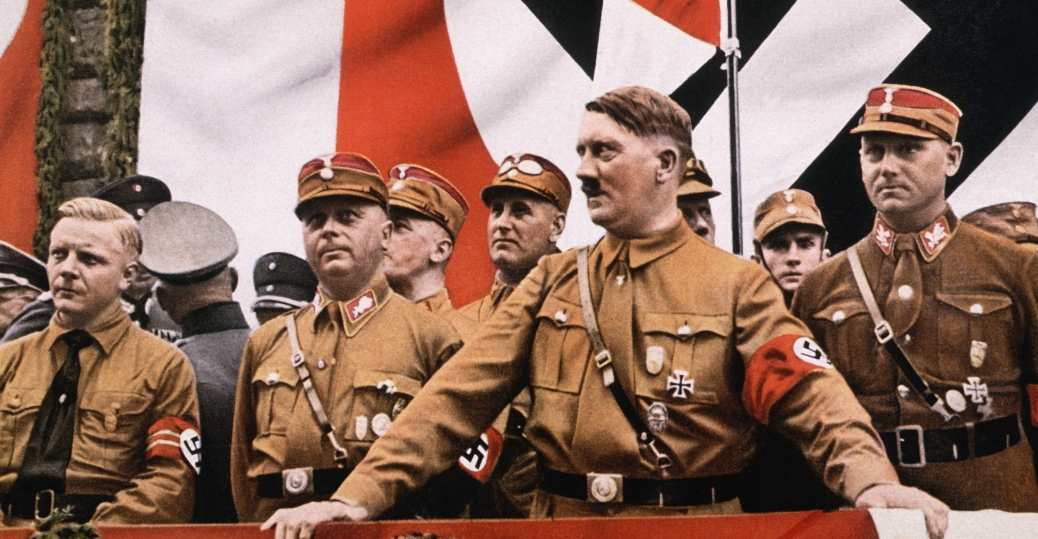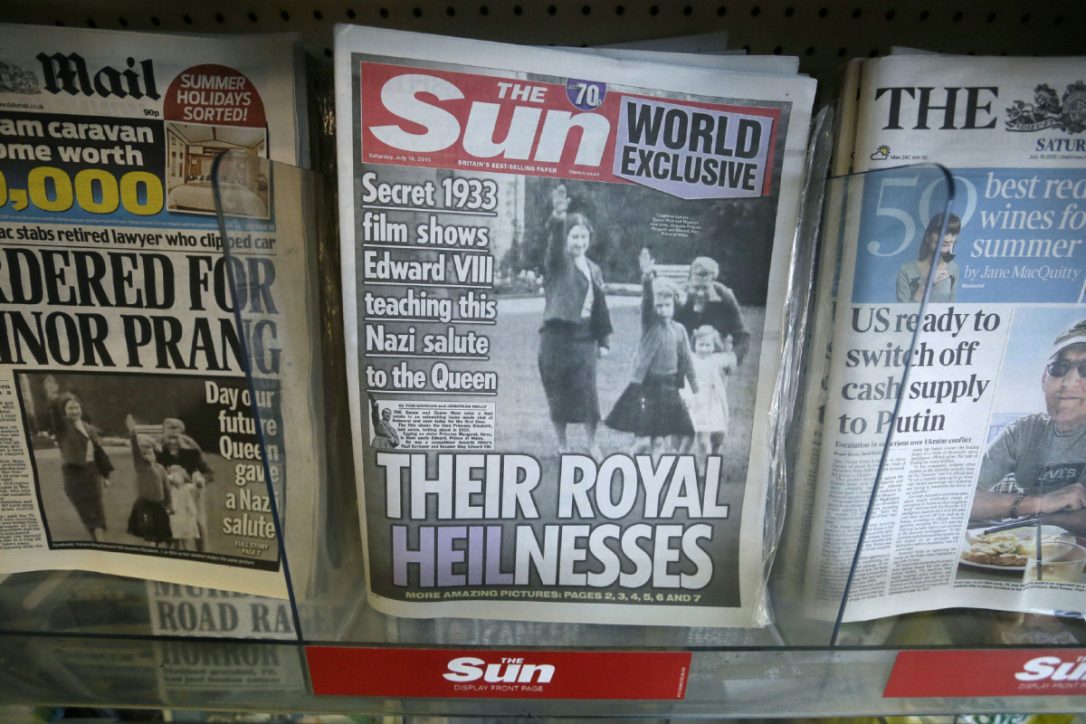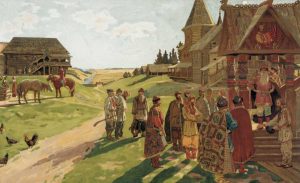
Views: 3099
More than six decades after Berlin’s capitulation which capped World War II, the war is still raging, now in the form of revisionist attempts to cast a shadow over the memory of Soviet soldiers who fought in it. Among other things, the efforts aimed at equating fascism – a monster nurtured by the West in the 1930s-1940s – and Russia’s XX century wartime past are supposed to divert attention from the continuity between the Anglo-Saxon imperialism and the German national socialism. The nature and key traits of the continuity are exposed in “From Imperialism to Fascism: Why Hitlers’ India was to be Russia” by renown historian and sociologist Prof. Manuel Sarkisyanz, an ethnic Armenian who was born in Baku, the capital of Azerbaijan, in 1923, held positions at the University of Heidelberg, and currently resides in Mexico. The availability of the book tends to be limited – I came across its 1997 German-language edition before it was published in Russian in 2003. “From Imperialism to Fascism” saw the light of day in English only in India and Ireland, the two countries burdened with painful memories of the British domination, and, as one could easily guess, has never been printed in Great Britain.
“From Imperialism to Fascism”, with chapter titles such as “England as the model for Hitler’s ‘Folk community’”, “Training new fuhrers by imitating England”, “Houston Stewart Chamberlain: British Pathbreaker, pioneer, seer of the third Reich”, “Britain’s home-grown Fascism”, and “Admiration of Hitler from Britain’s establishment”, is loaded with truly shocking revelations. Describing the fascist sys tem of education and indoctrination, Sarkisyanz cites original sources to prove that Germany’s Napolas – National Political Institutes of Education – were modeled by the SS on British public schools. From the early days of the Third Reich, Great Britain’s believers of racial supremacy met on a regular basis with their German imitators (who in the long run went far ahead of their teachers) and were fully aware of the fact that the fascist elite’s training used to be a replication of that given to the British circle of the chosen.
tem of education and indoctrination, Sarkisyanz cites original sources to prove that Germany’s Napolas – National Political Institutes of Education – were modeled by the SS on British public schools. From the early days of the Third Reich, Great Britain’s believers of racial supremacy met on a regular basis with their German imitators (who in the long run went far ahead of their teachers) and were fully aware of the fact that the fascist elite’s training used to be a replication of that given to the British circle of the chosen.
Hitler openly admired Great Britain’s system of education with its overarching strategy of cultivating a cast of masters of the world. Sarkisyanz points to the January 30, 1941 speech delivered by the Nazi leader in which he praised lavishly this distinctly British type of catechism. Sarkisyanz cites a report on the upbringing of future Nazi leaders, which was pre pared in 1938 by the Royal Institute of International Affairs and stressed that the Nazi learning institutions were largely patterned on the British public schools. Quite a few of the Third Reich’s top officers – for example, J. Ribbentrop, R. Ley – dreamed of seeing their children educated in Great Britain. Hitler boasted being the only German leader sufficiently tough to pursue goals as the British routinely did, and his model of colonizing Russia which he actually described as Germany’s India – drew heavily from the British colonial policies. Interestingly, the British administration in India imposed a ban on the demonstration of movies about German Nazism, evidently for fear that the similarities between the German fascists and British colonizers would not evade the local population.
pared in 1938 by the Royal Institute of International Affairs and stressed that the Nazi learning institutions were largely patterned on the British public schools. Quite a few of the Third Reich’s top officers – for example, J. Ribbentrop, R. Ley – dreamed of seeing their children educated in Great Britain. Hitler boasted being the only German leader sufficiently tough to pursue goals as the British routinely did, and his model of colonizing Russia which he actually described as Germany’s India – drew heavily from the British colonial policies. Interestingly, the British administration in India imposed a ban on the demonstration of movies about German Nazism, evidently for fear that the similarities between the German fascists and British colonizers would not evade the local population.
The lengthy list of Great Britain’s open sympathizers of fascism included such figures as W. Churchill’s son Randolph, the family of Lord Ridsdale, Lord Lamington, Lord Londonderry, and sociologist and commentator Houston Chamberlain. Goebbels organized a dinner – with Hitler attending! – on the occasion of the marriage between Lord Ridsdale’s daughter who used to wear a swastika-shaped brooch and British fascist Oswald Mosley. The Daily Mail, a British media outlet of the German Nazi, was owned by Lord Rothermere. The English Reviewwrote that the fascist supporters of Franco were Spain’s top-commendable people. Leader of the House Of Lords Lord Halifax was fascinated by Hitler during a 1937 visit to Germany and readily credited him with reviving Germany’s self-respect. According to Sarkisyanz, at least five of Great Britain’s parliamentarians were among the group of deeply impressed British guests at the 1936 Nazi party congress during which, by the way, Hitler mentioned a plan to conquer Ukraine.
The attraction between the German and British racists was so strong that until 1938 Hitler avoided imposing a ban on the operations of the British intelligence service in Germany. Hitler said that the two races – the British and the German – were cousins and therefore were destined to jointly rule the world. The view widely held in Great Britain at the time was that the country would dominate the seas, leaving to Germany the overland primacy.
Sarkisyanz notes that e ugenics, a doctrine widespread in the fascist Germany, was a purely British invention. Eugenics was believed to confirm the right of the Anglo-Saxon race – naturally, including Germans – to dominate the world. Granting citizenship based on racial regards became a norm in Germany under Hitler, but eugenics as a philosophy can be traced back to Great Britain, where its foundations were laid by Charles Darwin’s cousin Francis Galton. Galton held that both individuals within a particular race and individual races can be divided into various grades and authored the racist theory subsequently adopted by the German fascists. Galton also called for a crusade in the name of racial dominance and offered eugenics as an element akin to a new religion to be built into national mentality. Obviously, the ideas were taken over by the German Nazis. Author of The Invisible ManHerbert Wells was similarly convinced that “There is only one sane and logical thing to be done with an inferior race, and that is to exterminate it”.
ugenics, a doctrine widespread in the fascist Germany, was a purely British invention. Eugenics was believed to confirm the right of the Anglo-Saxon race – naturally, including Germans – to dominate the world. Granting citizenship based on racial regards became a norm in Germany under Hitler, but eugenics as a philosophy can be traced back to Great Britain, where its foundations were laid by Charles Darwin’s cousin Francis Galton. Galton held that both individuals within a particular race and individual races can be divided into various grades and authored the racist theory subsequently adopted by the German fascists. Galton also called for a crusade in the name of racial dominance and offered eugenics as an element akin to a new religion to be built into national mentality. Obviously, the ideas were taken over by the German Nazis. Author of The Invisible ManHerbert Wells was similarly convinced that “There is only one sane and logical thing to be done with an inferior race, and that is to exterminate it”.
Hannah Arendt wrote in the 1940s that Great Britain was the only country where racist ideology stemmed directly from a national tradition. In the British case, the tradition was based on Old-Testament puritanism and, moreover, reinforced by the entrenched perception of social stratification as a legitimate phenomenon: in Great Britain the social lows invariably harbored deep respect for the upper classes while the latter treated them with undisguised contempt.
British biographer of Germany’s ideologist of racism A. Rosenberg admitted that graduates of elite British universities would have felt embarrassed to see what role was ascribed to former generations of their alumni by the German Nazi. Hitler largely attributed Great Britain’s success in politics (such as the ability to maintain a grip on India for ages with minimal reliance on power) to the skills British colonial administrators owed to the national system of upbringing. In his 1934 “Houston Stewart Chamberlain as the Prophet of the Third Reich”, Georg Schott urged Germans to always keep in mind that, regardless of the two figures’ belonging to different countries, Chamberlain was the first to call Hitler the leader of the German people and to realize that the German fuhrer was driven by a kind of predestination.
One of the striking findings in Sarkisyanz’s book is that the British courts on the Channel Islands, a British territory occupied by Germany, prosecuted residents of the area on charges of resisting the occupants. The Channel Islands authorities viewed as a felony any type of conduct that led to conflicts with the Germans, plus a part of the local population was drawn into degrading treatment of inmates of the German-run labor camps.
One can only regret that Sarkisyanz’s “From Imperialism to Fascism” is practically unknown both in Russia and in the West. The treatise is banned in Great Britain, and in Germany Sarkisyanz faced two lawsuits over his piece of research…
Author: Vladislav Gulevich (Ukraine)
Source: Strategic Culture Foundation
Origins of images: Facebook, Twitter, Wikimedia, Wikipedia, Flickr, Google, Imageinjection & Pinterest.
Read our Disclaimer/Legal Statement!
Donate to Support Us
We would like to ask you to consider a small donation to help our team keep working. We accept no advertising and rely only on you, our readers, to keep us digging the truth on history, global politics and international relations.
FOLLOW US ON OUR SOCIAL PLATFORMS

